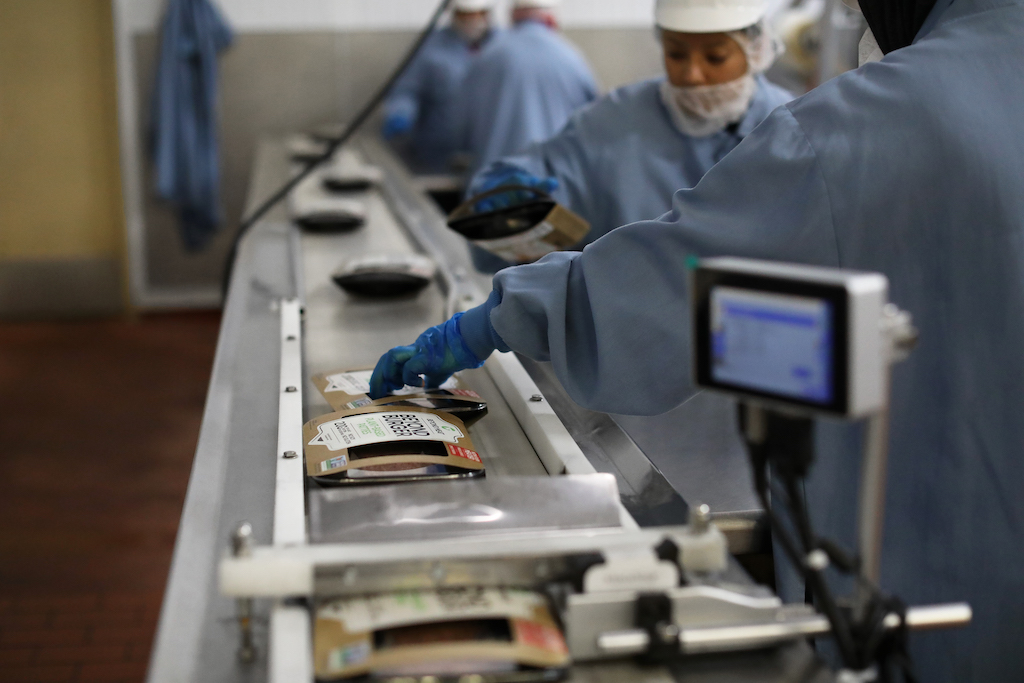3 Mins Read
Beyond Meat, the meat alternative food tech company that recently announced a 141% year-on-year revenue growth in its latest first-quarter earnings report shortly after celebrating its one year anniversary of going public, is getting ready for localised production. In the earnings release in which CEO Ethan Brown revealed its trajectory going forward, the company also confirmed their focus on establishing its production footprint in China to compete for a chunk of the country’s massive market.
“Our goal [is] establishing a production footprint in Asia before the end of 2020, pending further developments with the Covid-19 pandemic,” said Brown in his remarks.
“The magnitude of the opportunity in Asia merits significant investment. And reflecting such recent disruptions in the region’s protein supply due to African swine flu, we are proceeding with a sense of urgency appropriate for the challenge and opportunity alike.”
Read: 5 signs plant-based food tech investment is heating up amid Covid-19 supply shock

The CEO’s vision of capturing its share of the fast-growing Chinese plant-based meat market comes as the company entered the country last month in a landmark partnership with Starbucks, which saw its products roll out on menus across all 3,300 locations in the country alongside Omnipork and Oatly.
Brown commented that the launch was going “great” and had attracted “great results on social [media] regarding consumer acceptance of the product.”
Quickly following the Starbucks partnership, Brown revealed in an investor call that the company had finalised an agreement with major Chinese distributor Sinodis, which will help it roll out products across consumer retail and foodservice businesses across the country.
He added that Beyond Meat has set up a Chinese-language website and official social media accounts on popular Chinese networking platforms Weibo and Wechat.
Watch: Green Monday’s David Yeung on bringing Beyond Meat to Asia
Earlier, the company alluded to its aggressive strategy to grow in Asia when it announced that it obtained a US$150 million five-year secured revolving credit facility to finance its global expansion.

Setting up a local production facility in China will be a significant milestone for Beyond Meat, which has been vying for market share in China and broader Asia in recent months. Its main rival Impossible Foods, famous for its “bleeding” heme-filled vegan patties, has been keen to capitalise on the Asian plant-based market, particularly in China, and has launched two new vegan pork products as a part of its plan of action.
Read: What’s the actual difference between a Beyond & Impossible burger?
The demand for plant-based meat in China and other Asian markets has been steadily growing in recent years due to raised health, safety and supply concerns prompted by the ongoing African swine fever (ASF) outbreak, but the coronavirus pandemic has further raised the profile of plant-based foods as a sustainable and crisis-resilient solution.
While the Chinese economy is on the road towards normality as the outbreak eases in the country, recent news about a resurgence of avian influenza and the latest Div1 shrimp virus is likely to continue to stimulate consumer appetite for plant-based alternatives.
Some of the latest industry predictions reflect this. Last week, analysts from Zion Market Research published a report saying that the global vegan meat market will grow to reach US$21 billion by as soon as 2025, with the majority of the growth coming from Asia.
Lead image courtesy of Beyond Meat.




